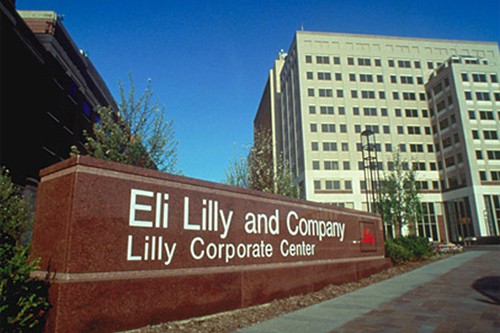
Eli Lilly’s Portrazza has become the first biologic drug to be approved in the US as a first-line therapy for non-small cell lung cancer (NSCLC).
The epidermal growth factor receptor (EGFR) blocker has been cleared by the FDA for use alongside chemotherapy with gemcitabine and cisplatin in patients with advanced squamous NSCLC, and the approval gives patients “a new option that may extend survival”, according to the agency.
Around 25% to 30% of all lung cancers are squamous in origin, and tend to be aggressive with fewer than 5% of patients with advanced disease surviving for five years or more.
Portrazza has been approved on the back of data from the SQUIRE trial, which revealed patients taking all the three drugs lived a little over a month longer than those taking gemcitabine and cisplatin alone.
Portrazza-treated patients survived for an average of 11.5 months, compared to 9.9 months for those who received chemotherapy alone, a benefit which while modest won the support of an FDA advisory committee in July.
“We have seen advances in lung cancer in the last 20 years, but not for the initial treatment of patients battling metastatic squamous NSCLC,” said Richard Gaynor, senior vice president of product development and medical affairs for Lilly Oncology.
“This is a complex disease and there is an urgent need for effective, first-line treatments,” he added.
Lilly has not yet revealed its pricing plans for the drug in the US, but said in a statement that it intends to offer a discount programme that will allow people on lower incomes to receive the drug at an out-of-pocket cost of no more than $25 per dose.
Portrazza’s label includes a boxed warning about potential risks of cardiac arrest and sudden death, as well as magnesium deficiency.
A number of other EGFR-targeting therapies are already on the market for NSCLC, including orally-active therapies such as AstraZeneca’s Iressa (gefitinib) and just-approved Tagrisso (omisertinib), Roche’s Tarceva (erlotinib) and Boehringer Ingelheim’s Giotrif (afatinib).
Analysts are predicting sales in the region of $500m a year for necitumumab thanks to its first-line indication. In future however it could see intense competition from checkpoint inhibitors such as Bristol-Myers Squibb’s Opdivo (nivolumab), which is approved as a second-line therapy for NSCLC and in trials for first-line use.




